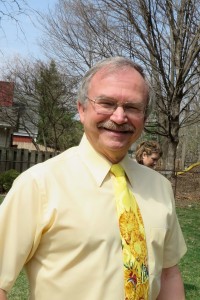 Spurred by the needs he saw in his students, Mike Pavelich became interested in science education and “how people think” early in his career. Following his passion to the Colorado School of Mines, he became interested in engineering education due to the influence of his colleagues. He co-authored a chemistry lab manual aimed at increasing analytical thinking titled Inquiries in Chemistry. He is also a co-founder of the EPICS program at Colorado School of Mines, which trains undergraduate students in evaluative thinking methods.
Spurred by the needs he saw in his students, Mike Pavelich became interested in science education and “how people think” early in his career. Following his passion to the Colorado School of Mines, he became interested in engineering education due to the influence of his colleagues. He co-authored a chemistry lab manual aimed at increasing analytical thinking titled Inquiries in Chemistry. He is also a co-founder of the EPICS program at Colorado School of Mines, which trains undergraduate students in evaluative thinking methods.
The profile below was authored by Mallory Squier, Syracuse University, based on an interview with Dr. Pavelich in 2014.
Continue reading Michael J. Pavelich: Fostering and measuring higher level thinking

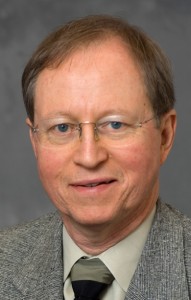 Karl A. Smith has been at the University of Minnesota since 1972. He retired from Civil Engineering in 2011 and currently has a part-time appointment in the STEM Education Research Center. In 2006, he joined the School of Engineering Education at Purdue University, where he helped start the doctoral program in Engineering Education. He first became interested in engineering education research while teaching an undergraduate course and pursued a Ph.D. in educational psychology. He has served as PI or co-PI on numerous NSF grants, workshops, centers, and projects; conducts workshops on cooperative learning for faculty; and has published eight books.
Karl A. Smith has been at the University of Minnesota since 1972. He retired from Civil Engineering in 2011 and currently has a part-time appointment in the STEM Education Research Center. In 2006, he joined the School of Engineering Education at Purdue University, where he helped start the doctoral program in Engineering Education. He first became interested in engineering education research while teaching an undergraduate course and pursued a Ph.D. in educational psychology. He has served as PI or co-PI on numerous NSF grants, workshops, centers, and projects; conducts workshops on cooperative learning for faculty; and has published eight books.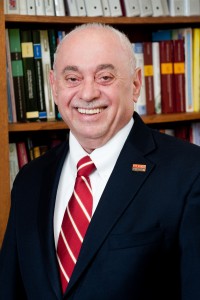 Louis Martin-Vega has served as the Dean of the College of Engineering at NC State since 2006, following his five-year tenure as Dean of the College of Engineering at University of South Florida. Dean Martin-Vega’s career in academic leadership has paralleled his career as a professor in industrial and systems engineering at the University of Puerto Rico at Mayaguez, University of Florida, Florida Institute of Technology, and Lehigh University, where he was Chair of Industrial and Manufacturing Systems Engineering. He has received multiple awards and recognitions for his involvement in the field of industrial engineering. He also served in several appointments with the National Science Foundation, including Acting Assistant Director of the Engineering Directorate. Dean Martin-Vega has also been a consultant to various industries.
Louis Martin-Vega has served as the Dean of the College of Engineering at NC State since 2006, following his five-year tenure as Dean of the College of Engineering at University of South Florida. Dean Martin-Vega’s career in academic leadership has paralleled his career as a professor in industrial and systems engineering at the University of Puerto Rico at Mayaguez, University of Florida, Florida Institute of Technology, and Lehigh University, where he was Chair of Industrial and Manufacturing Systems Engineering. He has received multiple awards and recognitions for his involvement in the field of industrial engineering. He also served in several appointments with the National Science Foundation, including Acting Assistant Director of the Engineering Directorate. Dean Martin-Vega has also been a consultant to various industries.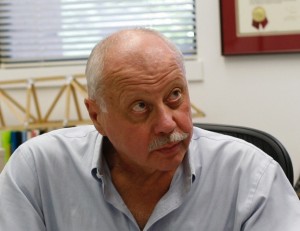 Clive Dym was Professor Emeritus of Engineering at Harvey Mudd College. While he spent much of the early part of his career as an engineering professor, Dr. Dym’s work in the field of engineering education started when he joined the faculty of Harvey Mudd in 1991. Through his work in revamping a freshman design course at Mudd, he became a significant voice in the movement to teach engineering design in the first year. As part of this work, he initiated the collaborative network that developed into the Harvey Mudd Design Workshops.
Clive Dym was Professor Emeritus of Engineering at Harvey Mudd College. While he spent much of the early part of his career as an engineering professor, Dr. Dym’s work in the field of engineering education started when he joined the faculty of Harvey Mudd in 1991. Through his work in revamping a freshman design course at Mudd, he became a significant voice in the movement to teach engineering design in the first year. As part of this work, he initiated the collaborative network that developed into the Harvey Mudd Design Workshops.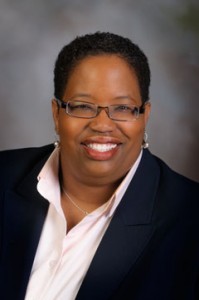 As one of the first people to receive an NSF CAREER award for work purely in engineering education, Stephanie Adams is a notable figure with a clear vision of what engineering can be. Through constant belief in the importance of her work, her presence in the field continues to give people hope and the belief that they too can succeed. Fueled by the realization that the status quo can and should be questioned, Dr. Adams has led research efforts in teaming and is currently putting her vision into reality as Department Head at Virginia Tech. She encourages all future engineering education pioneers to read as much as they can and talk to, collaborate, and learn with the people they admire in the field.
As one of the first people to receive an NSF CAREER award for work purely in engineering education, Stephanie Adams is a notable figure with a clear vision of what engineering can be. Through constant belief in the importance of her work, her presence in the field continues to give people hope and the belief that they too can succeed. Fueled by the realization that the status quo can and should be questioned, Dr. Adams has led research efforts in teaming and is currently putting her vision into reality as Department Head at Virginia Tech. She encourages all future engineering education pioneers to read as much as they can and talk to, collaborate, and learn with the people they admire in the field. Susan Metz works at national and local levels to improve engineering education and to increase access, retention, and advancement of underrepresented groups in STEM fields. Metz has secured substantial federal, corporate, and foundation funding to support multi-institutional research, curriculum, and programmatic efforts, working with over 200 four-year colleges and universities, community colleges, and professional organizations. As executive director of diversity and inclusion at Stevens Institute of Technology, she catalyzes efforts to increase faculty and student diversity and to enhance the university culture to promote success for all faculty and students. Metz is a founder and past president of the Women in Engineering ProActive Network and has served on advisory boards of organizations that significantly influence national STEM policy, including the National Science Foundation and National Academy of Engineering. Metz is a recipient of the Presidential Award for Excellence in Science, Mathematics, and Engineering Mentoring and the Maria Mitchell Women in Science Award, and she is a Fellow of the Association for Women in Science.
Susan Metz works at national and local levels to improve engineering education and to increase access, retention, and advancement of underrepresented groups in STEM fields. Metz has secured substantial federal, corporate, and foundation funding to support multi-institutional research, curriculum, and programmatic efforts, working with over 200 four-year colleges and universities, community colleges, and professional organizations. As executive director of diversity and inclusion at Stevens Institute of Technology, she catalyzes efforts to increase faculty and student diversity and to enhance the university culture to promote success for all faculty and students. Metz is a founder and past president of the Women in Engineering ProActive Network and has served on advisory boards of organizations that significantly influence national STEM policy, including the National Science Foundation and National Academy of Engineering. Metz is a recipient of the Presidential Award for Excellence in Science, Mathematics, and Engineering Mentoring and the Maria Mitchell Women in Science Award, and she is a Fellow of the Association for Women in Science.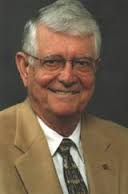 Jim Stice spent the majority of his career in engineering education, teaching past, current, and future academicians the art of teaching. He first explored his interest in engineering education as Assistant Professor at the University of Arkansas, and then moved to the University of Texas at Austin (UT-Austin) at the invitation of Dean John McKetta. At the beginning of his tenure at UT-Austin, Dr. Stice created and directed the Bureau of Engineering Teaching, believed to be the first engineering teaching and learning center. It was through this center that he created the first course on college teaching for engineering students. He was then asked to found and direct one of the nation’s first university-wide centers for teaching effectiveness at UT-Austin. This center offered many high-impact faculty professional development workshops. He then took the local faculty professional development activities to the national level through the National Effective Teaching Institute, which he co-founded with Richard Felder. He returned to teaching full-time in the Department of Chemical Engineering at UT-Austin before retiring in 1996.
Jim Stice spent the majority of his career in engineering education, teaching past, current, and future academicians the art of teaching. He first explored his interest in engineering education as Assistant Professor at the University of Arkansas, and then moved to the University of Texas at Austin (UT-Austin) at the invitation of Dean John McKetta. At the beginning of his tenure at UT-Austin, Dr. Stice created and directed the Bureau of Engineering Teaching, believed to be the first engineering teaching and learning center. It was through this center that he created the first course on college teaching for engineering students. He was then asked to found and direct one of the nation’s first university-wide centers for teaching effectiveness at UT-Austin. This center offered many high-impact faculty professional development workshops. He then took the local faculty professional development activities to the national level through the National Effective Teaching Institute, which he co-founded with Richard Felder. He returned to teaching full-time in the Department of Chemical Engineering at UT-Austin before retiring in 1996.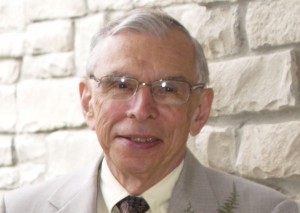 John Lindenlaub was a professor at Purdue University for over 35 years. John fell in love with teaching during his master’s program at MIT, and his commitment to teaching only increased throughout his career. His research on adapting technology for education was ground breaking and has been adopted by many educators since then. He was very involved with the IEEE Education Society and the ASEE Educational Research and Methods division, and he was on the steering committee of the first Frontiers in Education conference. He continues to be involved with engineering education and community service projects through his affiliation with the EPICS program at Purdue.
John Lindenlaub was a professor at Purdue University for over 35 years. John fell in love with teaching during his master’s program at MIT, and his commitment to teaching only increased throughout his career. His research on adapting technology for education was ground breaking and has been adopted by many educators since then. He was very involved with the IEEE Education Society and the ASEE Educational Research and Methods division, and he was on the steering committee of the first Frontiers in Education conference. He continues to be involved with engineering education and community service projects through his affiliation with the EPICS program at Purdue.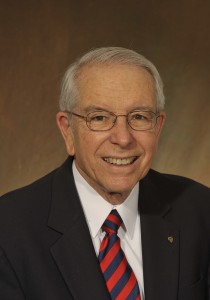 John Prados has worked at the University of Tennessee for almost 60 years, beginning as a graduate assistant in 1956. He has held various positions throughout his career, including full-time chemical engineering faculty member and department head, Associate Dean of Engineering, and Vice President for Academic Affairs of the statewide University of Tennessee system from 1973 through 1988. From 1994 through 1997, he served as Senior Education Associate in the Engineering Directorate of the National Science Foundation. He has also served as Chair of the Engineering Accreditation Commission, Secretary, and President of ABET and editor of the Journal of Engineering Education.
John Prados has worked at the University of Tennessee for almost 60 years, beginning as a graduate assistant in 1956. He has held various positions throughout his career, including full-time chemical engineering faculty member and department head, Associate Dean of Engineering, and Vice President for Academic Affairs of the statewide University of Tennessee system from 1973 through 1988. From 1994 through 1997, he served as Senior Education Associate in the Engineering Directorate of the National Science Foundation. He has also served as Chair of the Engineering Accreditation Commission, Secretary, and President of ABET and editor of the Journal of Engineering Education.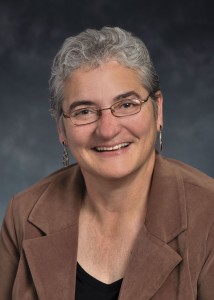 Karan Watson has been at Texas A&M for over 30 years. She is the Provost and Executive Vice President and a Regents Professor in the Department of Electrical and Computer Engineering and in the Department of Computer Science and Engineering. She has also served in a variety of university administrative roles as Vice Provost, Dean of Faculties and Associate Provost, and Vice President and Associate Provost for Diversity. Dr. Watson has also been Associate Dean for Graduate Studies and Associate Dean for Academic Affairs in the Look College of Engineering. She served on the Board of Directors of ABET and served as President of ABET for 2012–13.
Karan Watson has been at Texas A&M for over 30 years. She is the Provost and Executive Vice President and a Regents Professor in the Department of Electrical and Computer Engineering and in the Department of Computer Science and Engineering. She has also served in a variety of university administrative roles as Vice Provost, Dean of Faculties and Associate Provost, and Vice President and Associate Provost for Diversity. Dr. Watson has also been Associate Dean for Graduate Studies and Associate Dean for Academic Affairs in the Look College of Engineering. She served on the Board of Directors of ABET and served as President of ABET for 2012–13.